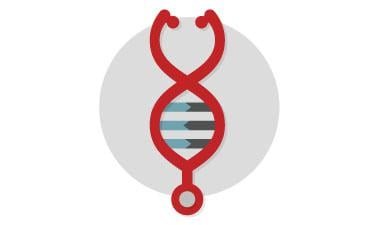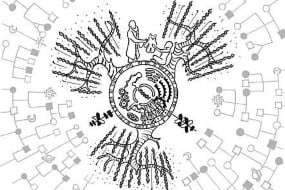Genomic Technologies in Clinical Diagnostics: Molecular Techniques
Learn how molecular genetic techniques are used to identify the genetic factors that contribute to the development of disease.
Who is the course for?
This course is designed for scientists and healthcare professionals with an interest in obtaining a postgraduate-level understanding of molecular genomic techniques.
If you are new to the field, we recommend that before you start this course, you complete The Genomics Era: the Future of Genetics in Medicine.
What topics will you cover?
Polymerase chain reaction (PCR)
Sanger sequencing
Southern blotting
Multiplex ligation probe amplification (MLPA)
Array comparative genomic hybridisation (array CGH)
Karyotyping
Fluorescent in situ hybridisation (FISH)
Quantitative fluorescent PCR (QF-PCR)
Single nucleotide polymorphism (SNP) genotyping and genome wide association studies (GWAS)
The extraction and analysis of cell free fetal DNA, including non-invasive prenatal testing (NIPT).
What will you achieve?
By the end of the course, you‘ll be able to…
Demonstrate knowledge and applicability of the molecular principles behind PCR/Sanger sequencing
Next Generation Sequencing
MLPA/MS_MLPA
Southern blotting
array CGH
FISH
User Reviews
Be the first to review “Genomic Technologies in Clinical Diagnostics: Molecular Techniques”
You must be logged in to post a review.







There are no reviews yet.